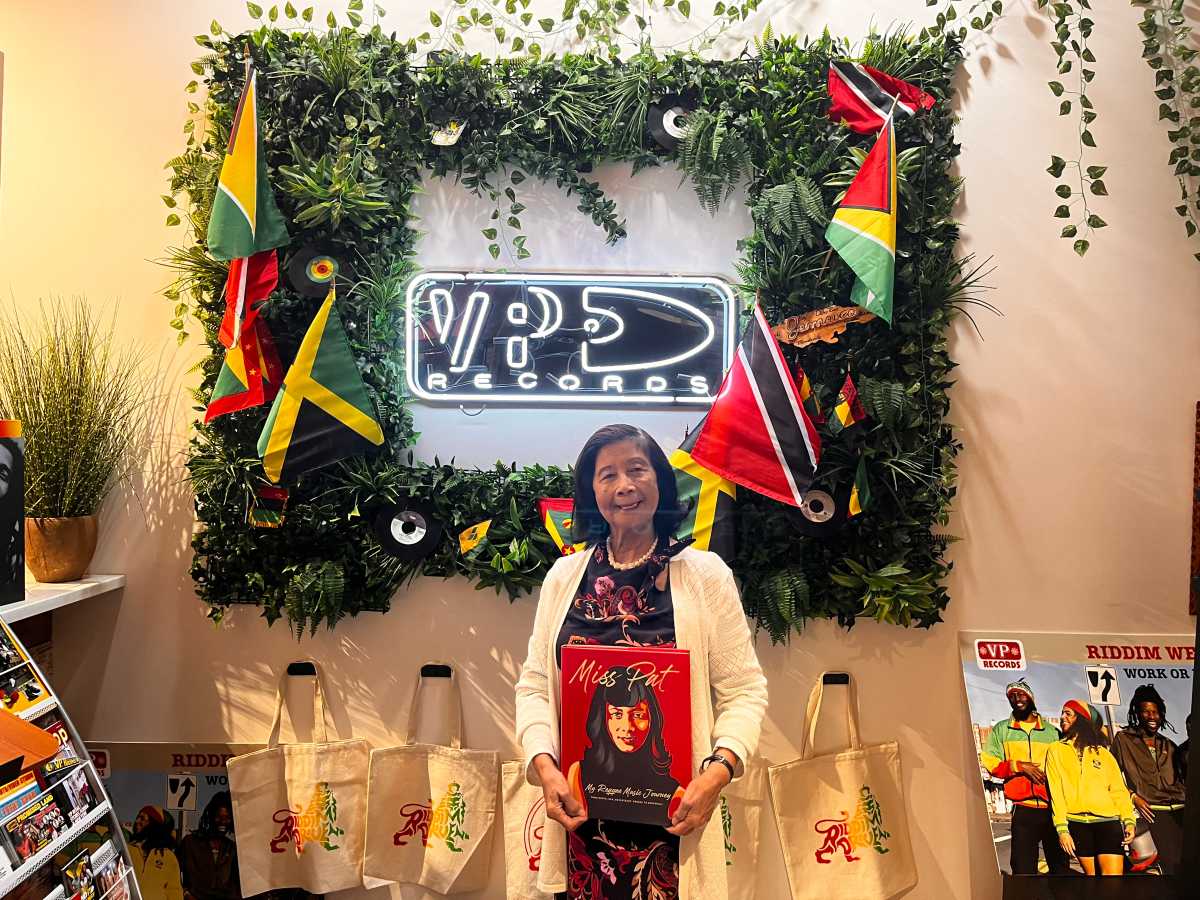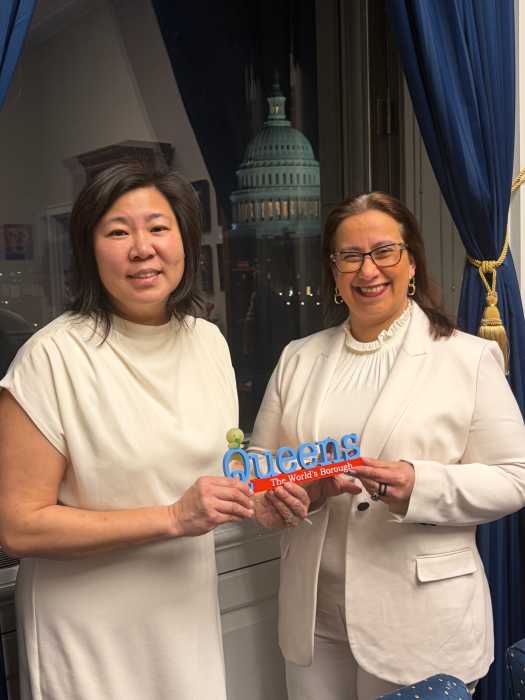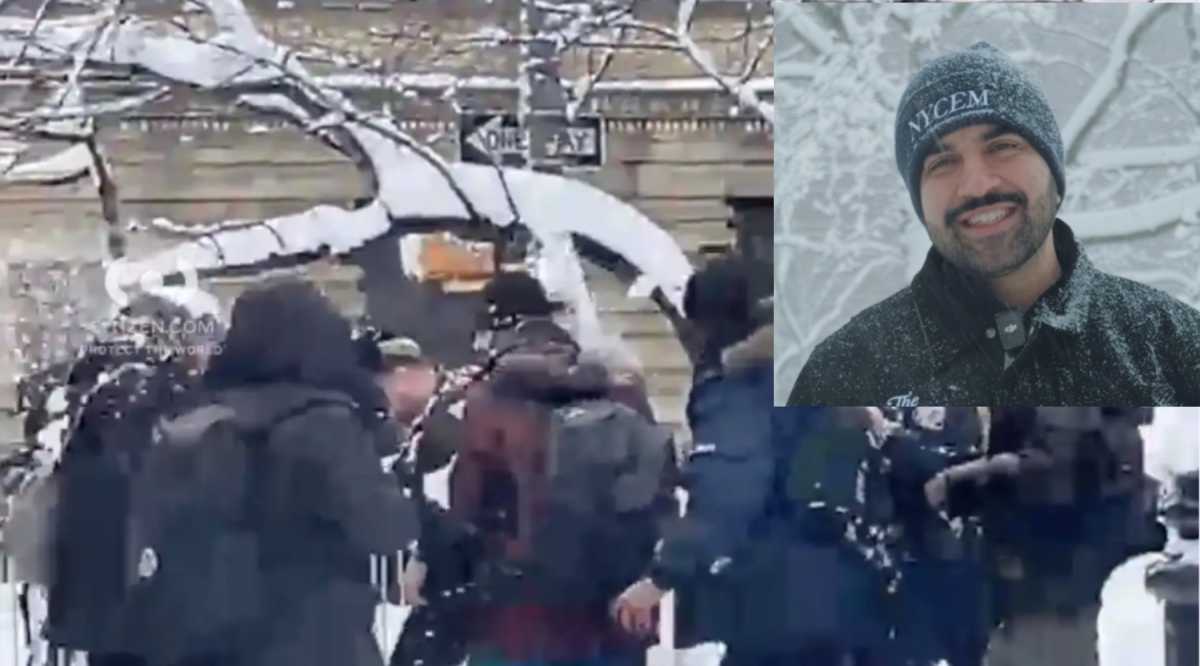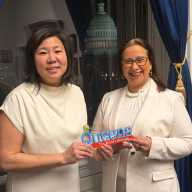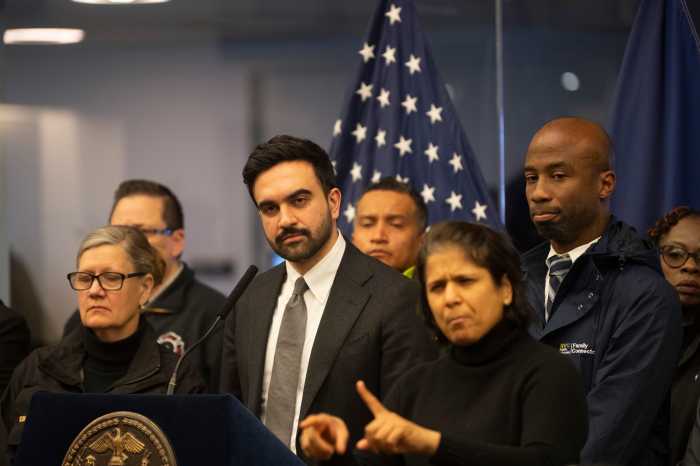Iconic Jamaica Queens landmark VP Records celebrated its 45th anniversary with the grand opening of its reggae photography exhibit on Friday, Oct. 4.
Reggae Blood Lines: The Reggae Photography of Peter Simon exhibit is located at 170-21 Jamaica Ave., in a community space owned by the record label and next to its retail location. The exhibit is open to the public every Saturday from October to the end of December. It features works from photojournalist Peter Simon’s books “Reggae Blood Lines: In Search Of The Music And Culture Of Jamaica” and “Reggae International,” co-authored by Stephen Davis.
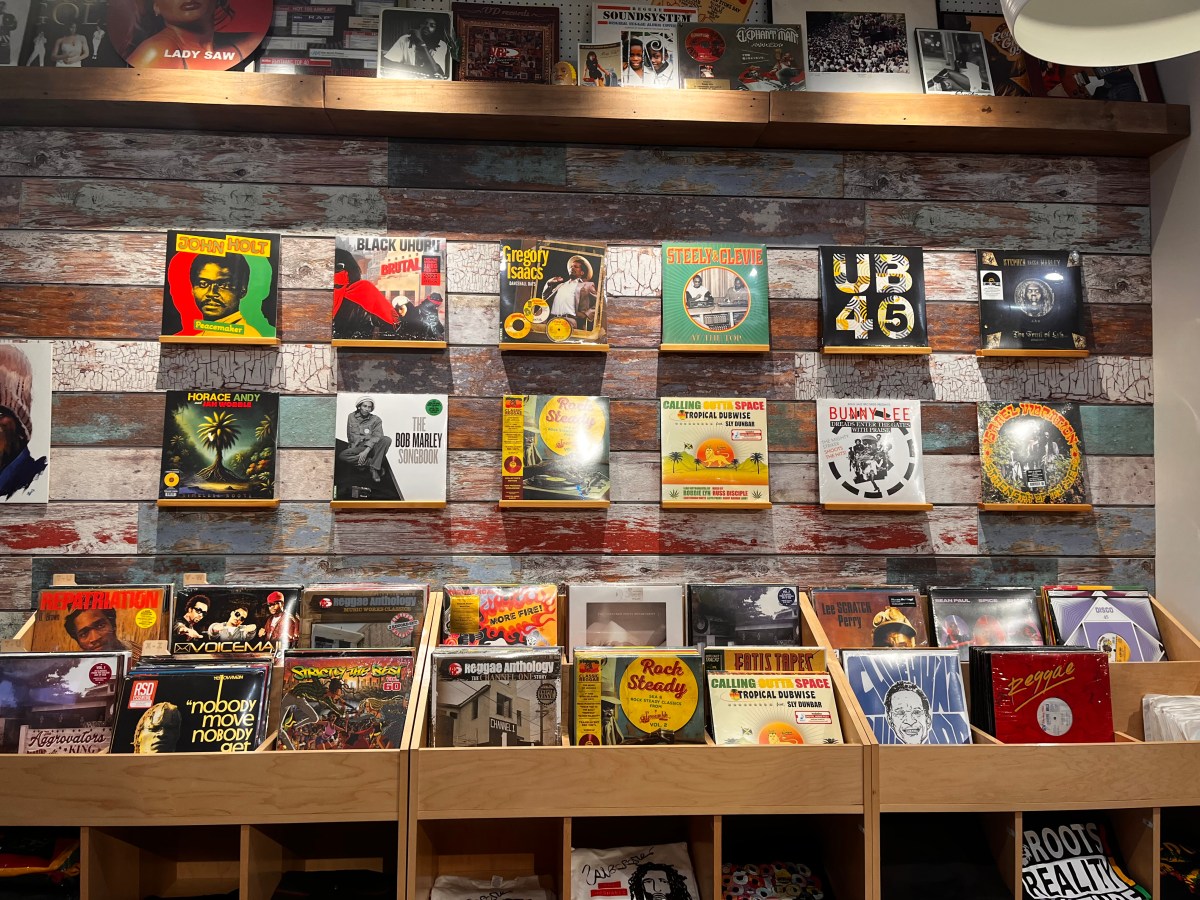
Much of Simon’s work reflected in “Reggae Blood Lines” are images from the ’70s, capturing the early-career photos of some of reggae’s legendary artists and producers, including Bob Marley, Dennis Brown, King Tubby, Fred Locks and Lee Perry. Through the black and white portraits Simon captured in the island nation, the exhibit plays homage to the late Simon’s revolutionary coverage of Reggae artists in the ‘70s.
In recognition of his contributions, the Jamaica Ministry of Tourism declared Simon as the first photojournalist to bring Reggae to the U.S. in 2013, and then in 2016, he was honored with the launch of a retrospective exhibition in Kingston, Jamaica.
Aaron Talbert, curator of the “Reggae Bloodlines” exhibit and vice president of sales and marketing at VP Records, explained the process of purchasing the selection of Simon’s photographs on display. Talbert said he traveled to Boston to meet with Simon’s son and wife, Ronni Simon and perused three times as many photos seen in the gallery. He said that many of the images selected were based on VP Records’ music catalog.
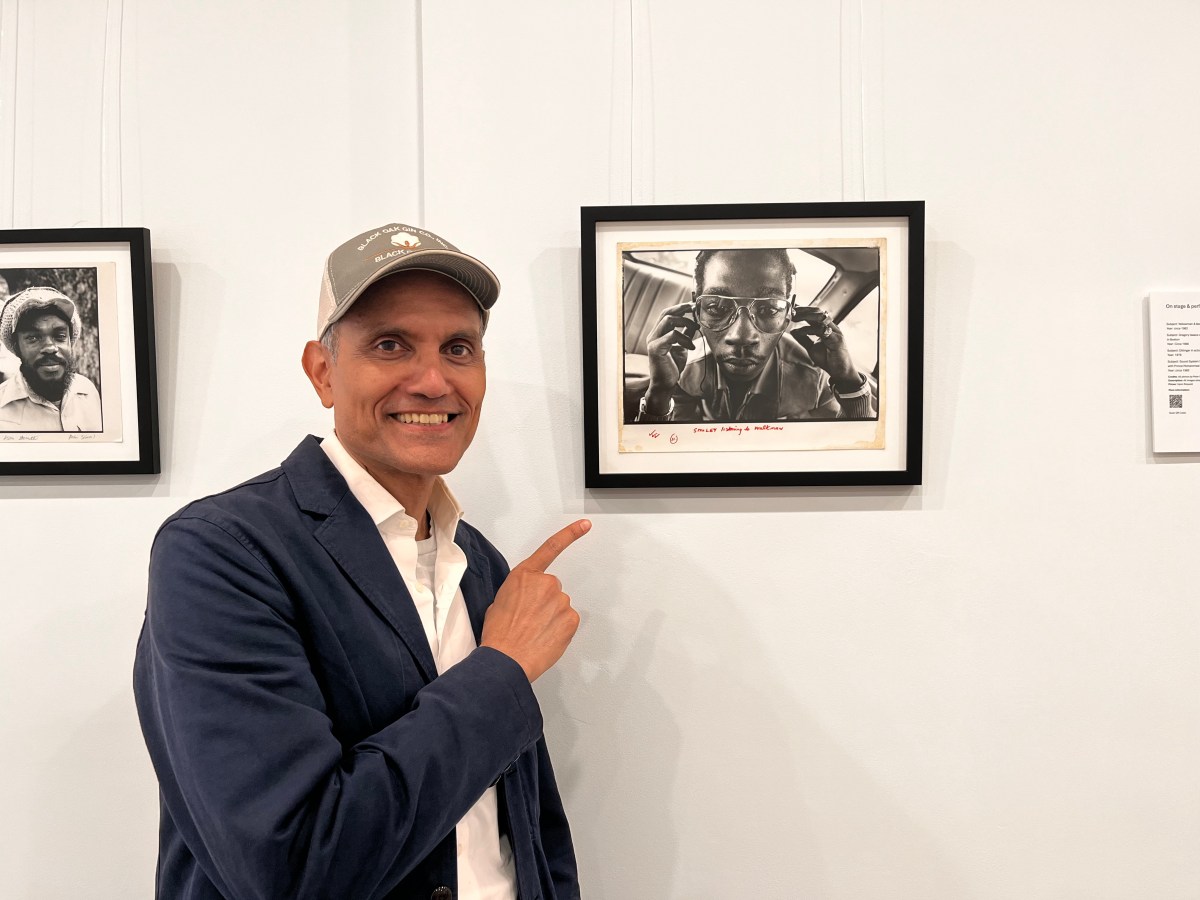
“VP’s been in the business of Reggae since the beginning…many of the records that would be represented by these artists, we’ve either pressed and distributed or sold in our retail store or through our label,” Talbert said. “Our mission, our mantle is that we’re the reggae stalwarts.”
Talbert also shared the historical and political significance of Simon’s photographs depicted in “Reggae Bloodlines.” “What was going on was..almost a civil war politically, he said. “That’s around the time that VP moved up here in 1977. The book was published in [1977]. So, politically speaking, there’s a lot happening. For Peter Simon to go to Jamaica and to be hanging out in the studio and meeting these artists during that period is definitely unique,” he said.

Talbert added that he was intentional about placing the photos in the gallery. Around the exhibit, the images are grouped in multiple themed sections, conveying a range of progressing emotions. “If you check out the first ones, they’re sort of guarded. The body language is..they’re not into it, necessarily, right? It does get warmer, and like the Family Man photo, it seems like, genuinely, there’s a warmth coming across,” he said.
Talbert said that Reggae was an insular music genre for many Jamaicans, making Simon’s coverage significant. “Everybody knows Bob[ Marley], but beyond Bob Marley, these are very important figures who helped make that whole thing happen,” Talbert said. “So King Tubby is, regarded by most people as if not the originator, one of the key people in dub music and in the sound of dub,” he said. Talbert described dub music as instrumentals and atmospheric sounds that paved the way for Jamaican dance music.
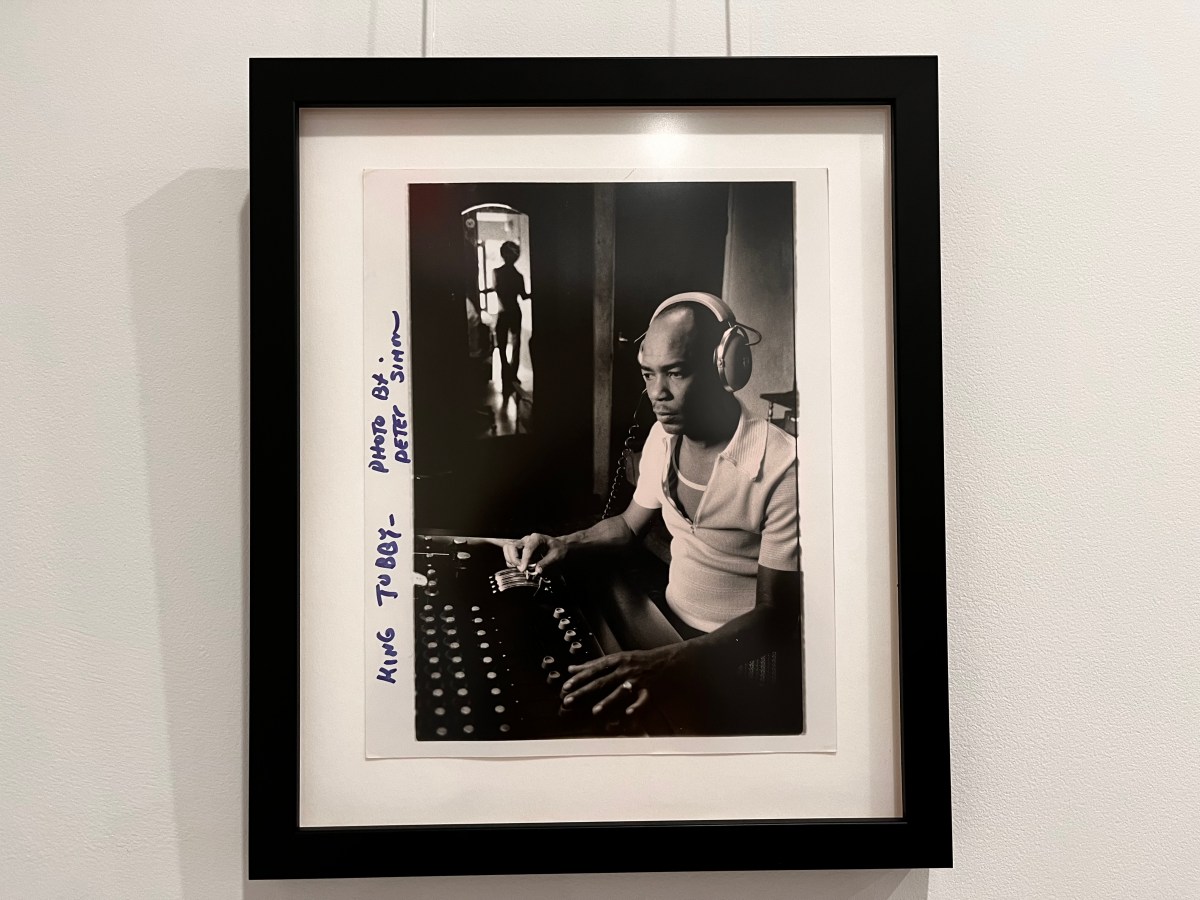
The “Reggae Blood Lines” exhibit is symbolic of the influence VP Records has had in the Reggae music industry. The largest indie reggae record label in the world, VP Records, was founded by Patricia ‘Miss Pat’ Chin and her late husband Vincent ‘Randy’ Chin. Miss Pat, known to many in the industry as the ‘Godmother of Reggae,’ has spent over six decades in the Reggae music industry. The couple founded Randy’s Record Mart, a famed music shop and recording studio in downtown Kingston, Jamaica, in 1958 and opened VP Record Distributors in the late 1970s after immigrating to New York City.
Miss Pat spoke to QNS about the legacy she’s built in the music industry.
“My journey started 60 years ago. I was in Jamaica producing music and giving the young singers wings to fly. We had a studio called Studio 17, and when we left Jamaica 45 years ago, we continued with the same business that we had, to develop the young artists and encourage them to have a singing career,” she said. In 1968, the couple opened the legendary Studio 17 above the record shop. Many of Reggae’s biggest names, including Peter Tosh, Bunny Lee, Alton Ellis, and Dennis Brown, made their earliest recordings in Studio 17.
She explained that Reggae music is an extension of the soul of Jamaican people and culture. “Back home in Jamaica, people sing every day. We sing when we’re happy. We sing when we’re sad. We sing when we go to church; we sing at weddings,” she said. “And music never dies because it’s a beautiful way of bringing people together.”
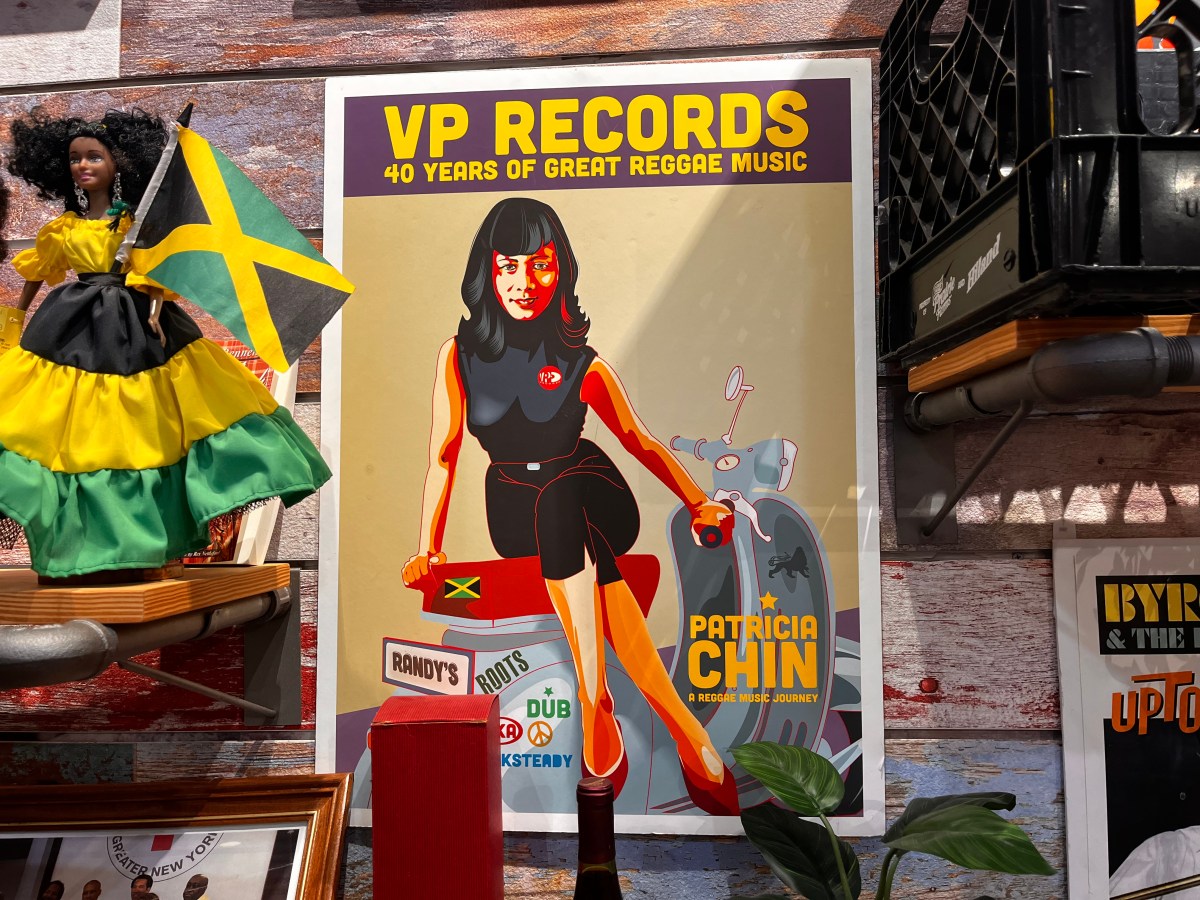
Chin said that when she came to New York City 45 years ago, she faced a culture shock. She eventually assimilated and settled in Jamaica, Queens, as it reminded her of her homeland of Jamaica. Her love for the neighborhood eventually led to the development of the reggae/dancehall label. Chin added that, at times, people doubted her knowledge of the industry due to her gender, but she quickly silenced nay-sayers.
“They thought that a woman didn’t know music, but the truth is…I did 20 years on the counter. So I know all the singers, all the producers, all the versions, all the music,” she said. “I want to thank all the artists and the producers, sound system, people like you who spread the music around in different ways,” she said. “I am truly blessed. Long live Jamaica and Reggae music.”

